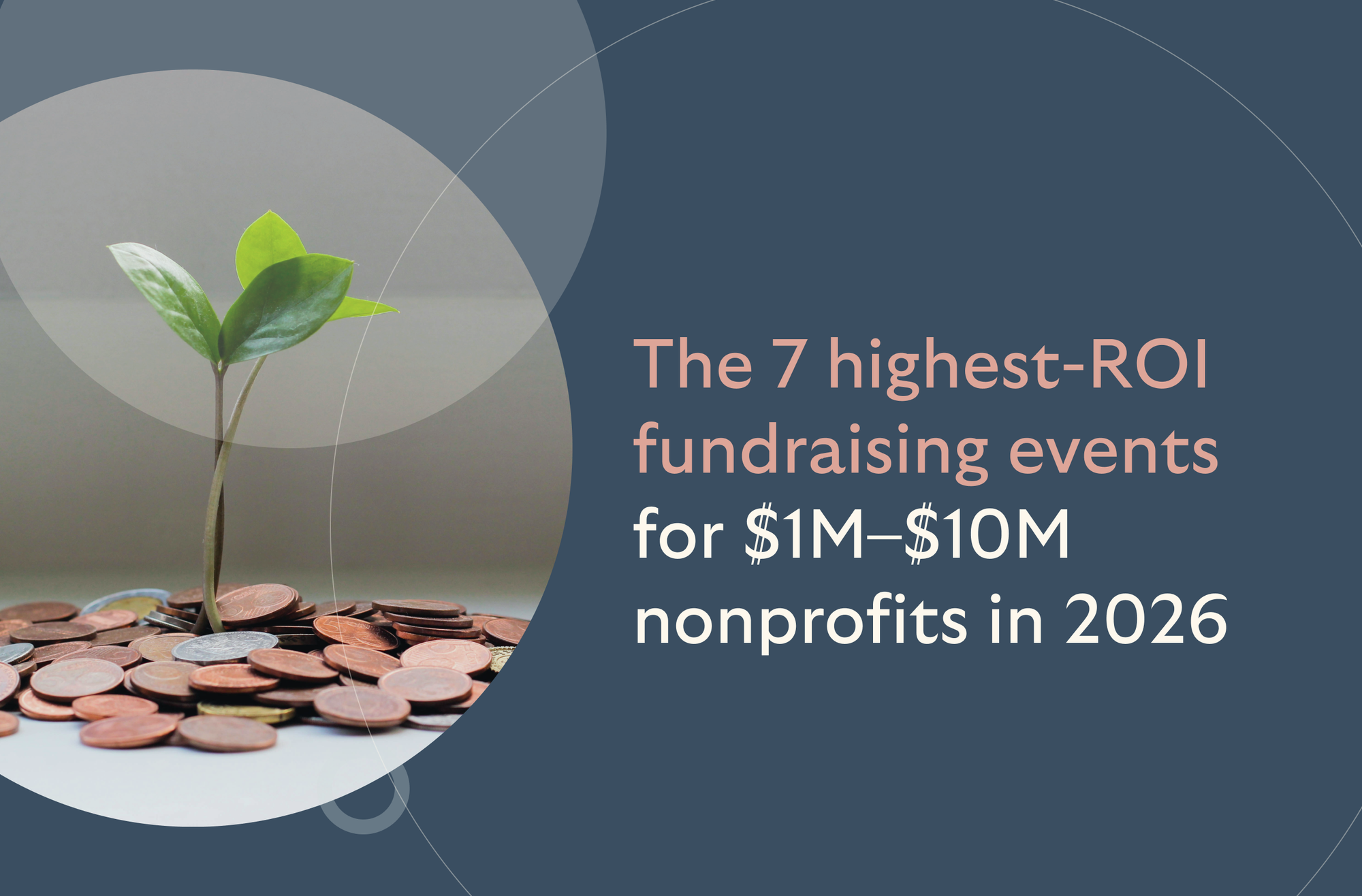Select and customize the fundraising method best suited for your organization
BetterWorld seamlessly integrates with both online and in-person auctions
Impress donors with creative raffle items and elegant online raffles
Create attractive donation pages that maximize donor impact and boost online giving
Legal and Ethical Considerations in Fundraising for Charity
By Whit Hunter

Fundraising for charity is an important activity that helps many people and causes. However, it's crucial to remember that there are laws and ethical rules to follow. In this article, we will talk about these legal and ethical considerations.
We'll explain what you should and shouldn't do when raising money for a charity. Our goal is to help you understand these rules clearly and easily so you can make sure your fundraising efforts are both successful and responsible.
What Are The Legal Requirements In Fundraising?
When planning a fundraising event, it's essential to be aware of the legal requirements to ensure compliance with both state and federal laws. Here's an overview of what you need to know:
Overview of Key Legal Regulations in Fundraising
· State and Federal Regulations
Fundraising in the United States is governed by a mix of state and federal regulations. These laws are designed to protect donors, the general public, and charities themselves from fraud and misleading practices.
The Federal Trade Commission (FTC) regulates charitable solicitations, requiring organizations to be transparent and truthful in their fundraising efforts.
· Charitable Solicitation Registration
Most states require charities that solicit donations to register with state charity offices. This registration helps monitor fundraising activities and ensures that there's accountability in case of complaints or deceptive practices.
· Professional Fundraiser Registration
If you're using paid professionals for fundraising, like grant writers or solicitors, many states require these individuals or companies to register as well.
Importance of Adhering to State and Federal Laws
Adhering to these laws is crucial for several reasons:
Maintaining Trust
Compliance helps maintain public trust in the nonprofit sector. Violations can lead to loss of credibility and trust among potential donors.
Avoiding Legal Consequences
Non-compliance can lead to legal consequences, including fines and, in serious cases, the shutdown of fraudulent charities.
Necessary Permits and Registrations for Fundraising
· Games of Chance Regulations
Certain fundraising events, like raffles or auctions, are highly regulated. Depending on the state, your nonprofit might need a state license for these activities. It’s important to check the specific laws of each state where the event will be held.
· Tax Obligations
Be aware of unrelated business income tax (UBIT). If your fundraising activities are not closely related to your organization’s exempt purpose, the income might be taxable.
· Licensing for Events Involving Alcohol
If your event includes alcohol, a separate license might be necessary. This varies by state.
Ethical Fundraising Practices in Charity
Ethical fundraising is characterized by transparency, accountability, and respect for donor intent. It goes beyond just meeting legal requirements; it's about conducting fundraising in a way that maintains the integrity and reputation of the organization.
This involves clear and honest communication, respecting donor privacy and confidentiality, and managing funds responsibly.
The Impact of Ethics on Donor Trust and Charity Reputation
Ethics in fundraising is crucial for maintaining donor trust and a positive reputation. When charities follow high ethical standards, they increase public trust, which is key to successful fundraising. Transparency in how funds are used, respecting donor wishes, and honest communication are also vital.
If the public doubts an organization's credibility or ethical practices, it can lead to reduced fundraising revenue and a bad reputation.
Transparent Financial Management
Transparency in financial management is crucial for non-profit organizations. It builds trust among stakeholders, including donors, regulators, and the public.
Accurate financial reporting and transparency are essential for decision-making by leadership and the board, compliance with tax and regulatory requirements, and demonstrating the efficient use of funds towards fulfilling the mission.
It's not just about following legal standards; transparent financial practices strengthen the integrity and credibility of the organization in the public eye.
Try BetterWorld’s robust suite of charity & nonprofit fundraising tools for FREE!
Best Practices for Managing and Reporting Funds
· Regular and Accurate Reporting
Create detailed financial reports that accurately reflect the organization's activities. It should include income statements, balance sheets, and cash flow statements for non-profit accounting standards.
· Budget Monitoring
Constantly compare actual financial performance against the budget. This practice helps identify any significant changes and make necessary adjustments.
· Board Engagement
Ensure that the board of directors is actively involved in reviewing financial statements and performance. Their legal responsibility is to oversee the organization's financial health.
· Annual Reporting to IRS (Form 990)
This is a legal requirement and also a chance to showcase the organization's financial health and compliance to the public.
· Audit Readiness
Conduct regular internal checks and prepare for external audits.
· Transparent Communication
Share financial reports with stakeholders, including donors and the public, in an understandable format. This can be done through annual reports, newsletters, or the organization’s website.
· Use of Financial Management Tools
Implement accounting software and tools to increase accuracy and efficiency in financial reporting and management.
· Training and Development
Invest in training for staff to improve their financial management skills and understanding of best practices.
Donor Privacy and Data Protection
· Understanding Donor Privacy Concerns
Donor privacy is one of the biggest concerns in the nonprofit sector.
When donors contribute to a nonprofit, they place a considerable amount of trust in the organization. They expect their personal information, such as contact details and financial data, to be handled responsibly and confidentially.
This trust is critical to maintaining a positive relationship between donors and the organization. Mismanagement of this data can lead to a loss of trust and support.
· Legal Requirements for Data Protection
Nonprofits must deal with legal requirements concerning data protection, which includes compliance at the state, federal, and international levels.
Each state may have different laws regarding the registration and operation of nonprofits, especially when it comes to fundraising activities. Federally, nonprofits are required to report donations to maintain their tax-exempt status accurately.
For instance, most nonprofits must file a 990-series form with the IRS. Internationally, regulations like the General Data Protection Regulation (GDPR) apply if the nonprofit collects data from residents of the European Union, regardless of the organization's location.
This law requires strict adherence to principles such as data minimization, accuracy, and storage limitation.
· Best Practices for Handling Donor Information
To effectively manage and protect donor information, nonprofits should adopt and honor clear privacy policies. These policies should outline how personally identifiable information (PII) is collected, used, and protected.
It's crucial to collect only the information necessary for your organization's operations and to be transparent with donors about how their information is used. Implementing secure donation platforms and ensuring compliance with data security standards like the Payment Card Industry Data Security Standard (PCI DSS) is also important.
Nonprofits should educate their staff and volunteers on the importance of data privacy and ensure that they follow the established policies. It's advised not to buy or sell donor lists, as this practice can quickly destroy trust.
Avoiding Misleading or Deceptive Practices
Misleading fundraising tactics can include various deceptive methods used by some organizations to entice donations. These tactics often involve misrepresenting the true nature of the organization, the use of funds, or the benefits provided to the causes they claim to support.
For example, organizations may claim to support popular causes like veterans or cancer research but allocate an insignificant percentage of the collected funds to these causes.
Another tactic is the use of high-pressure sales techniques, including persistent and aggressive phone calls, which can mislead donors about the urgency or impact of their contributions.
Legal Consequences of Deceptive Practices
The legal consequences of engaging in deceptive fundraising practices can be significant.
The Federal Trade Commission (FTC) and state attorneys general are actively involved in cracking down on fraudulent fundraising activities.
For instance, the FTC, along with 38 states and D.C., shut down a massive telefunding operation that involved deceptive fundraising calls. The operation had bombarded millions of consumers with billions of misleading calls, collecting over $110 million under false pretenses.
The defendants were found to have violated the Telemarketing Sales Rule (TSR) and several state laws. As a result, they faced severe legal actions, including permanent prohibitions from fundraising activities, telemarketing, and substantial monetary judgments.
These actions highlight the seriousness with which fraudulent fundraising is treated by law enforcement agencies. Nonprofit organizations need to be aware that if they engage in deceptive practices, they risk not only legal repercussions but also damage to their reputation and public trust, which are critical to their ongoing operations and success.
Inclusive and Respectful Fundraising
Inclusivity in fundraising is critical for nonprofits as it aligns with the changing demographics and social identities of the population.
Supporting diversity and inclusivity in fundraising strategies ensures that an organization can effectively connect with and address the needs of varied communities. It also helps in diversifying funding streams and aligning the fundraising efforts with the organization's mission-driven work.
Strategies for Respectful and Inclusive Practices
To incorporate respectful and inclusive practices in fundraising, consider the following strategies:
· Use Inclusive Language and Messaging
Adopt gender-inclusive language that includes people with different abilities and levels of expertise. This approach should extend beyond written language to visuals, photos, and videos used in fundraising communications.
· Understand Your Audience
Avoid assuming cultural norms or linguistic preferences. Be mindful not to center communications around dominant cultural perspectives or holidays that may not be universally celebrated.
· Consider Subject Matter Sensitively
Ensure that your subject matter is presented in a way that avoids deficit-based language and does not misplace root causes. For example, focusing on 'racism' instead of 'race issues' ensures the language does not inadvertently blame marginalized groups for systemic problems.
· Understand Context
Be aware of the historical and current context in which your messages are received. Ensure that the narratives you share do not perpetuate stereotypes or minimize important issues.
· Prioritize Consent
When sharing stories or images of constituents, obtain informed consent and offer opportunities for individuals to share their stories in their own words.
Avoiding Discrimination and Respecting Diversity
Inclusive and respectful fundraising means ensuring everyone feels welcome to participate. This approach involves understanding and valuing the different backgrounds and perspectives of potential donors.
Nonprofits should aim to create a fundraising environment where discrimination is actively avoided, and diversity is respected and celebrated.
Strategies include using language and imagery in fundraising materials that reflect a variety of communities, ensuring accessibility for people with disabilities, and being mindful of cultural sensitivities.
Building Trust Through Legal and Ethical Fundraising
Remember, the heart of successful fundraising lies in transparent practices.
When we follow these ethical guidelines, we build a foundation of trust. This trust isn't just essential; it's the lifeblood of all charity work. It ensures that every dollar raised is a step towards genuine change, not just a transaction.
So, let's carry this torch of trust and integrity forward. It's not just about what we achieve but how we achieve it. Let's keep up the good work and make the world a better place, one kind act at a time!

Join 105,000+ amazing nonprofits, organizations, and fundraisers on BetterWorld

Let our FREE fundraising tools help you raise more funds with less effort







